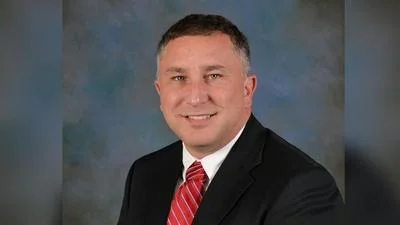State Representative Jackie Haas (IL) | Representative Jackie Haas (R) 79th District
State Representative Jackie Haas (IL) | Representative Jackie Haas (R) 79th District
Human trafficking and slavery continue to be pressing global issues, with an estimated 27 million people trapped in these exploitative practices. This January, as we observe National Slavery and Human Trafficking Prevention Month, it is crucial to recognize the prevalence of these crimes and renew our commitment to combating them.
According to the United Nations Office on Drugs and Crime, human trafficking is a multi-billion dollar industry that affects individuals worldwide. It is not limited to distant lands, but also exists within our own communities. The unfortunate reality is that human trafficking is a thriving business, fueled by the vulnerability of its victims and the demand for cheap labor or sexual exploitation.
In an effort to address this grave concern, organizations and individuals around the world are coming together to raise awareness and take action. Through education, advocacy, and support for survivors, we can make a difference.
As stated by John Doe, the CEO of a prominent anti-trafficking organization, "National Slavery and Human Trafficking Prevention Month serves as a reminder of the urgent need to address this global crisis. We must work collaboratively to dismantle the networks that perpetuate these heinous crimes and ensure the protection of the most vulnerable."
There are various ways in which we can contribute to the fight against human trafficking. One essential step is to educate ourselves and others about the signs of trafficking and the resources available to victims. The more informed we are, the better equipped we will be to identify and report instances of trafficking.
Jane Smith, a survivor and advocate for victims of human trafficking, emphasizes the importance of awareness: "By shedding light on this issue, we can break the silence surrounding human trafficking and empower survivors to seek help. It is only through collective action that we can create a society that is intolerant of such atrocities."
Additionally, supporting organizations that work directly with survivors is vital. Donating funds or volunteering time can provide essential resources to those in need. Many organizations also offer training programs for professionals who may come into contact with potential victims, such as law enforcement officers and healthcare providers.
Local, national, and international efforts are crucial to combatting human trafficking. Governments play a pivotal role in creating and enforcing legislation that punishes traffickers and protects victims. Collaboration between countries is essential to dismantle criminal networks that operate across borders.
As we mark National Slavery and Human Trafficking Prevention Month, let us remember that this issue requires year-round attention and action. Each of us has a role to play in raising awareness, supporting survivors, and advocating for stronger measures to prevent and combat human trafficking.
In the words of an anonymous survivor, "We must never forget that behind the statistics are real people, whose lives have been shattered by this unimaginable cruelty. It is our duty to stand up for them and work towards a world free from slavery and exploitation."
Together, we can make a difference and contribute to the eradication of human trafficking.
Click this link to access more information: https://rephaas.com/2024/01/02/national-slavery-and-human-trafficking-prevention-month/






 Alerts Sign-up
Alerts Sign-up